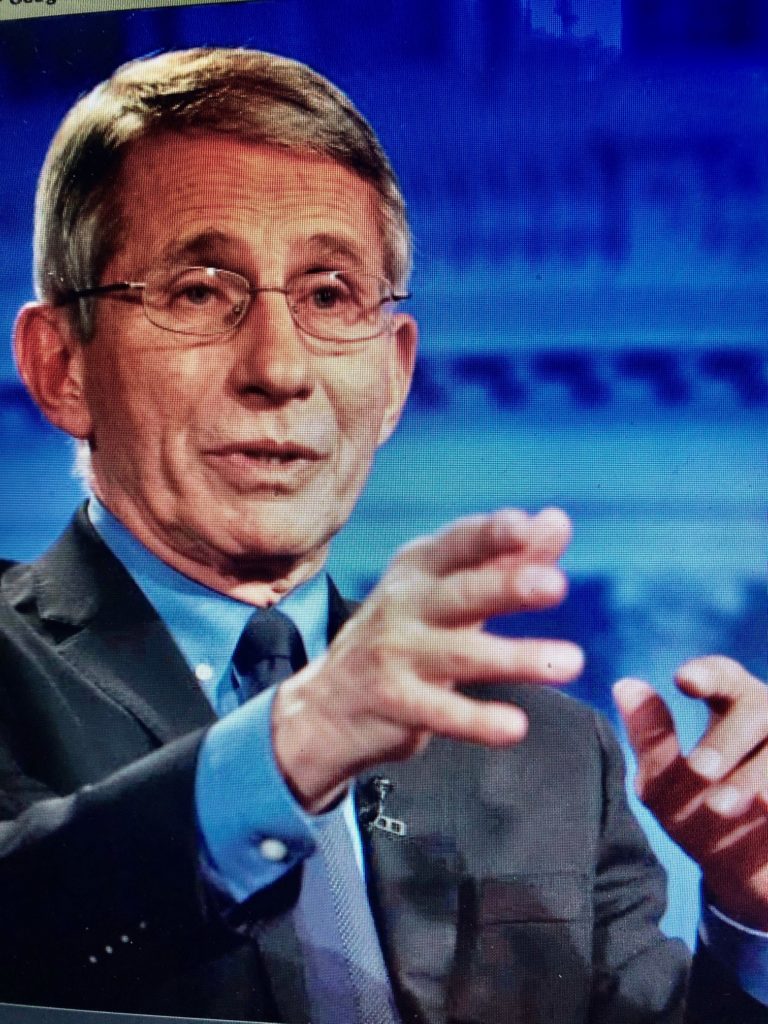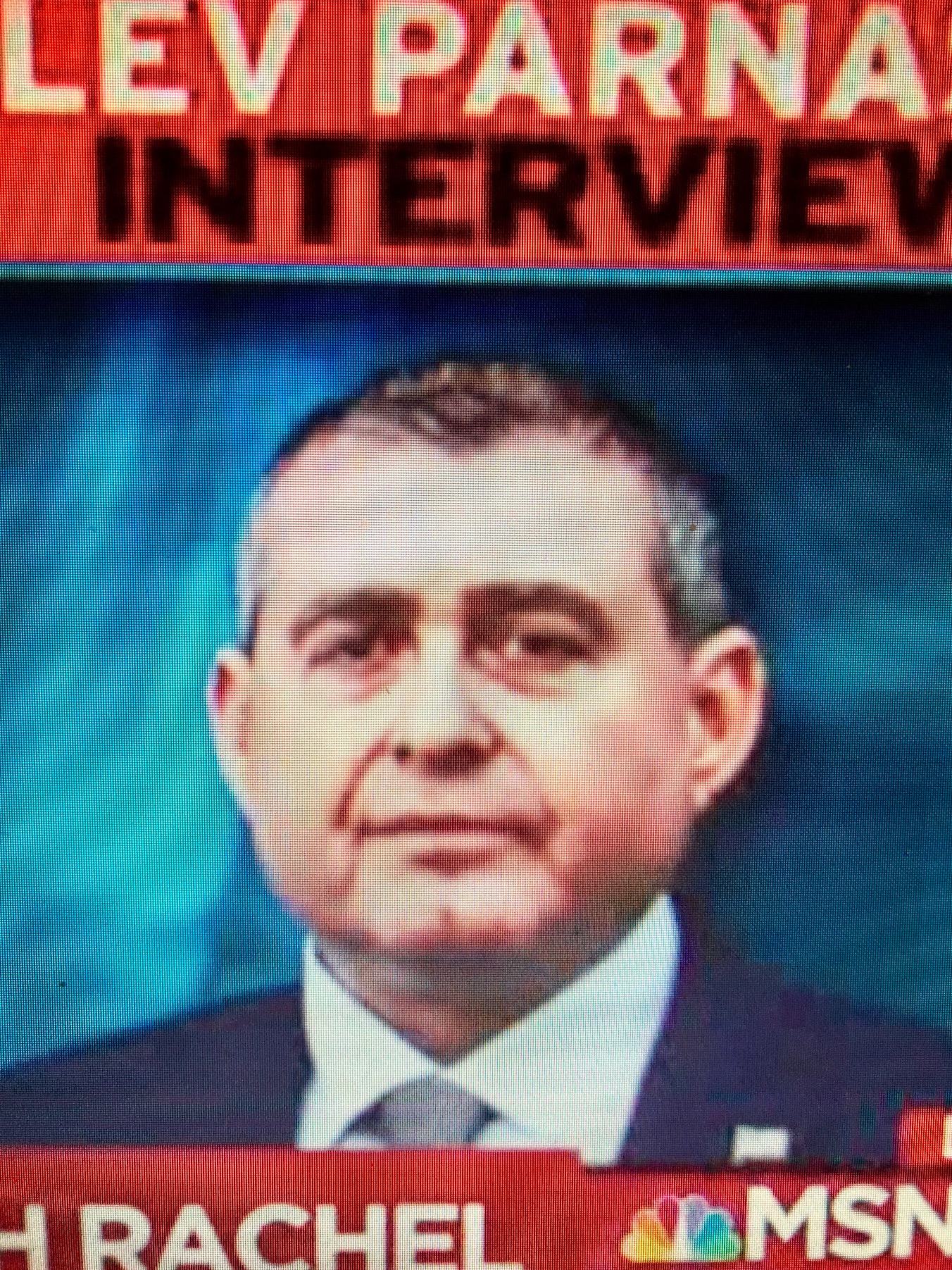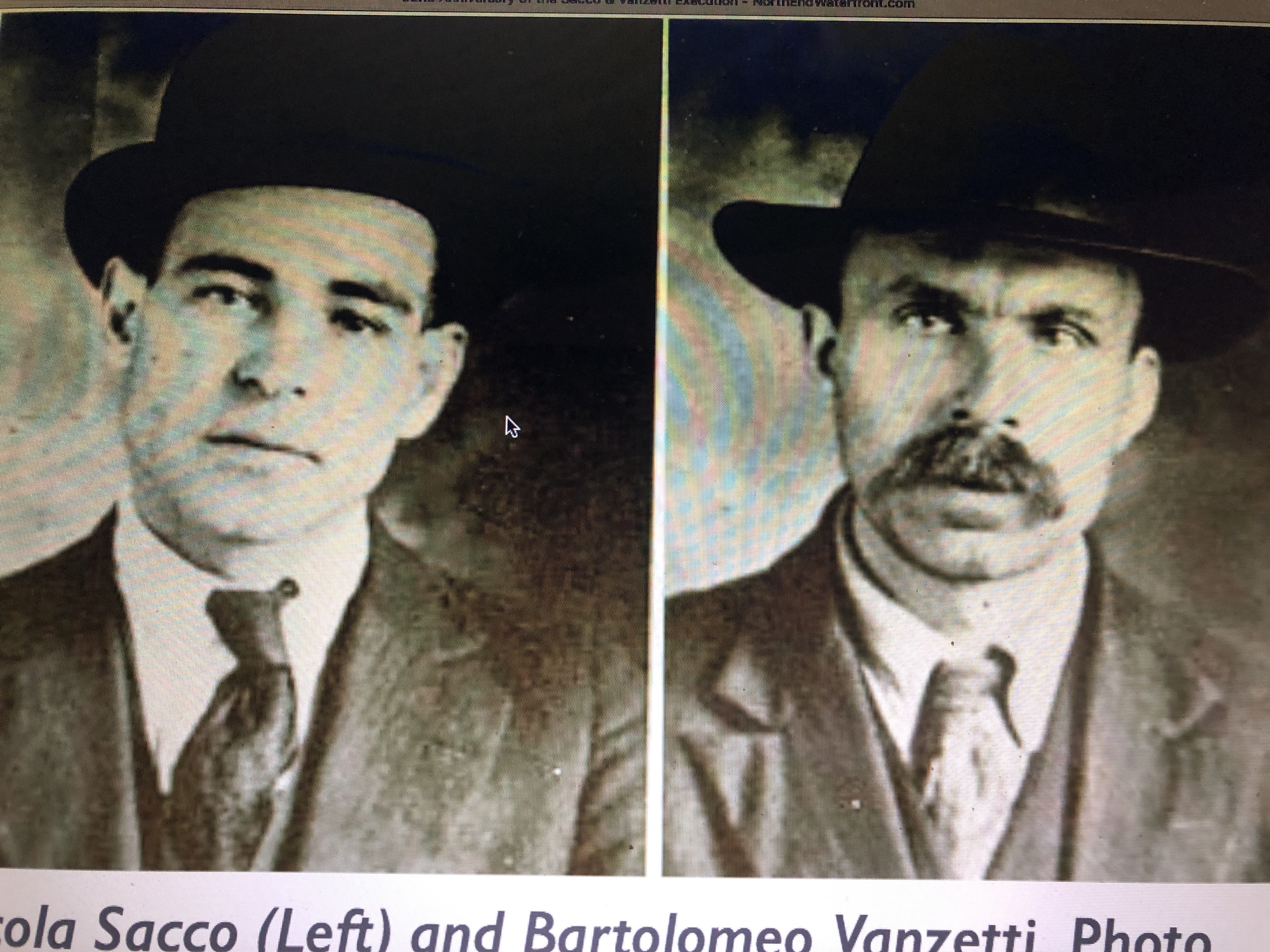
It would be easy to get caught up in the campaign for canonization of Dr. Anthony Fauci.
The Director of the National Institute for Allergies and Infectious Diseases since the Presidency of Ronald Reagan, Fauci is the only believable spokesperson in the Trump Administration on the COVID 19 pandemic. His colleague Dr. Deborah Birx, the Administration’s Corona Virus Response Coordinator, crushed her own credibility by telling the Christian Broadcasting Network the preposterous lie that “The President is so attentive to the scientific literature and the details and the data.” Birx also gratuitously embellished Trump’s criticisms of the World Health Organization, and dissembled more than once on the matter of testing — probably the single most important, and missing factor — in mapping out any Corona Virus Response, for which she is responsible.
Unlike “Ambassador” Birx, who comes across like a wealthy, well-dressed dilettante, bemoaning being unable to host “dinner parties for 20 yet,” because of social distancing, Anthony Fauci is a down-to-earth, likeable 79-year old, highly educated Italian professional from Brooklyn — still bearing scraps of his Brooklyn accent — who played basketball in High School and rooted for the Yankees despite growing up on Brooklyn Dodger turf.
That training in street toughness, highlighted in a recent New Yorker article by Michael Specter, entitled, “How Anthony Fauci Became America’s Doctor,” should have made Fauci fight more furiously, against the anti-science prejudice and profit-over-patients Darwinism rampant inside the Trump White House, and frothing from the mouths of Ingraham, Hannity, Carlson, and even the fallacious Dr. Phil on Fox News. Unfortunately, like the good point guard he was on his high school team, Fauci stays in his lane, highly disciplined, especially when it comes to forcefully exposing lies and intentional falsehoods by Presidents and others with more power and bigger megaphones than he thinks he has. In fact, at this moment in history, no one in this country has more power nor a bigger following than Dr. Fauci — and no one is in a better position to save more lives by fearlessly using that force.
He wasn’t always so afraid to exercise his power, nor be so confrontation-averse. After graduating Medical School, Fauci choose to enter the Public Health Service, as a constructive alternative to going off to War in Vietnam. He didn’t pretend to have bone spurs to avoid service. Instead, he wanted to serve people and save lives the best way he knew how — by improving public health.
In the early days of the HIV/AIDS epidemic, Fauci, then at NIH, immersed himself in learning about this mysterious new disease. Unfortunately, he was buried in the bowels of the homophobic Reagan Administration where AIDS was laughed at, and the name of the disease wasn’t spoken for seven years by the President. For three of those years, Fauci served as the Director of the National Institute of Allergies and Infectious Diseases, a position he still holds 36 years, and five Presidents, later.
“ My face was the face of the Federal Government,” Fauci told The New Yorker’s Specter, in discussing his early role in fighting the AIDS epidemic. Specter wrote that Dr. Fauci asked the same question every day: “Why wasn’t the Administration moving faster?”
It’s the same question Dr. Fauci should be asking every single day today — with far more power than he had four decades earlier — of another fact-denying Administration. Unfortunately, now, under Trump, as he did under Reagan, Fauci has limited his effectiveness by limiting his aggressiveness. Again, he’s the high school basketball point guard, choosing to stay in his narrow lane.
Fauci was hated by AIDS activists, like Larry Kramer, founder of the Gay Men’s Health Crisis, who first called him a “murderer,” Michael Callen, and Sean Strub. They found Fauci to be “uncooperative,” as Strub wrote in his book Body Counts (Scribner, NY, 2014), too tightly bound to the research scientist’s sometimes myopic mantra of focusing only on the data, and not seeing the patients most affected by the disease.
But it was this disease and it’s catastrophic effect on patients, unlike anything Dr. Fauci had seen before, that pushed the point-guard hard over the line.
“Everybody died,” Fauci told Specter for The New Yorker. “I was used to treating people who had so little hope, and then saving their lives — that was so wonderful. But with AIDS in those days, I saved no one.” AIDS transformed Fauci, Specter wrote, from a “ conventional bench scientist to a public health activist.”
Fauci’s transformation was gradual, like a butterfly emerging from its comfortable cocoon. Over time, he became one of the most influential voices in the United States and the world on HIV/AIDS, winning the trust and respect of AIDS activists who previously loathed him. It was also his voice which was most influential in the creation of PEPFAR — the President’s Emergency Plan for AIDS Relief — a landmark achievement of George W. Bush’s, considered to be a model for addressing global epidemics and credited with saving more than 17 million lives worldwide.
Fauci had morphed from being a “sinner by silence” to Saint Anthony on HIV/AIDS over 25 years, making him the perfect addition to Trump’s public-facing phalanx of medical/scientific professionals when COVID 19 crashed into the United States. The conventional bench scientist in him knew all the data about how strong and early moves to mitigate the effects of a pandemic — and early and continuous testing — could reduce the number of deaths. Fauci told CNN’s Jake Tapper that much on State of the Union, on Easter Sunday, April 11, 2020, when the number of COVID 19 deaths in the United States surpassed 20,000, and appeared to be out of control:
“Obviously, you could logically say that if you had a process that was ongoing and you started mitigation earlier, you could have saved lives. But, there was a lot of pushback about shutting things early in the outbreak.”
The following day, with Trump hovering over the 5’5” Fauci at the White House Press briefing the way he lurked behind Hillary Clinton during a debate, the Infectious Disease expert walked back his statement — viewed as highly critical of the Administration’s failure to act swiftly — by tamping down the word “pushback.”
Yet, the question that was not asked of Fauci at that moment was whether he, Saint Anthony, was part of that “pushback,” to start mitigation and testing earlier and consistently? If so, how hard did he push? The question was the same Larry Kramer raised about Fauci before the good doctor’s transformation on HIV/AIDS: “Had Tony Fauci done all he was capable of doing?” (Strub, Body Counts, p. 328.) And, oddly, it was the very same question Fauci himself raised about the Reagan Administration 35 years earlier while a part of it: “Why wasn’t the Administration moving faster?”
Similar questions could have been raised about why the first batch of the CDC’s COVID 19 tests were defective (and who was responsible for them), and why, based upon Fauci’s extensive experience with epidemics, wasn’t he aware of the abysmal condition of the federal stockpile on medical supplies essential for use in any epidemiological emergency?
The easy, facile answer is that “it wasn’t in his lane,” which would push him back to being nothing more than a conventional bench scientist again and not one of the world’s leading public health advocates, which he has become. It’s an excuse which his old colleague and former NIH Director Dr. Harold Varmus gave to the New Yorker’s Specter:
““Tony isn’t running C.D.C. He’s not running FEMA. To tell him to stockpile defense mechanisms or to move forward surveillance tools into massive operations around the world — that’s just not his remit.”
That just doesn’t wash when one is talking about Tony Fauci at this stage of his distinguished career, where the world’s health is “his remit.” No one else has the enormous capacity, knowledge, record of accomplishment, depth of expertise, passion for public health and access to power as Dr. Fauci does. In fact, the answer was right in front of Fauci, in his own words and beliefs which defined his transformation from “bench scientist” to “public health activist” over HIV/AIDS, 30 years earlier:
““Everybody died. “I was used to treating people who had so little hope, and then saving their lives — that was so wonderful. But with AIDS (COVID-19, today), I saved no one.”
So it’s legitimate to ask if Saint Anthony has done all he is capable of doing at the peak of his power and influence? Has Fauci fought hard enough to mitigate the death and suffering of the COVID 19 pandemic, in nursing homes, poor urban and rural communities, among African Americans and health care workers abandoned by the present American president whose Administration is “not moving fast enough”? Is Dr. Fauci ready to jump out his comfort zone one more time to save even more lives? Or will he retreat to being a conventional bench scientist, and not the public health activist and truth-teller we know him to be? Is Fauci doing “everything he possibly can to stop the worst from happening,” as he told the NewYorker? Is Fauci moving fast & forcefully enough?
At 79 years old, with over 50 years of stellar public service, I pray that Saint Anthony is not distracted from his calling, nor diminished by his daily dealings with Donald Trump. Facing the biggest public health challenge of his lifetime — and ours — Dr. Fauci needs to amplify all of his courage and faith once again, to move out of his safe, familiar lane, and take the shot.






